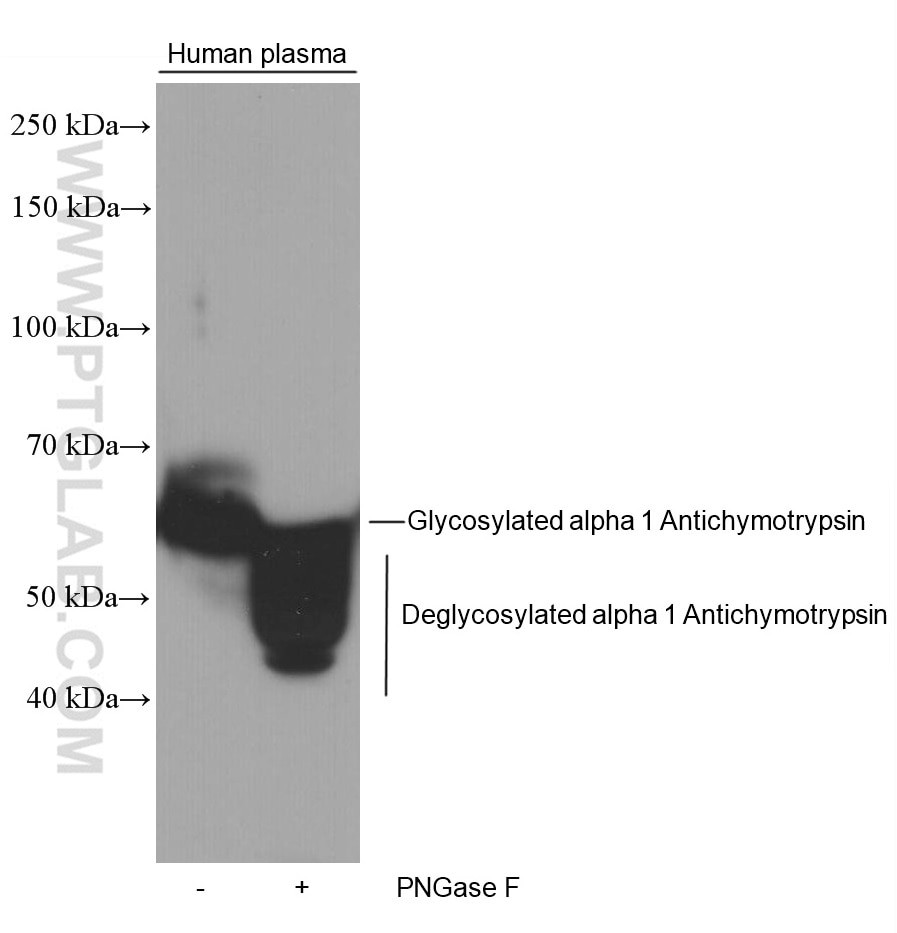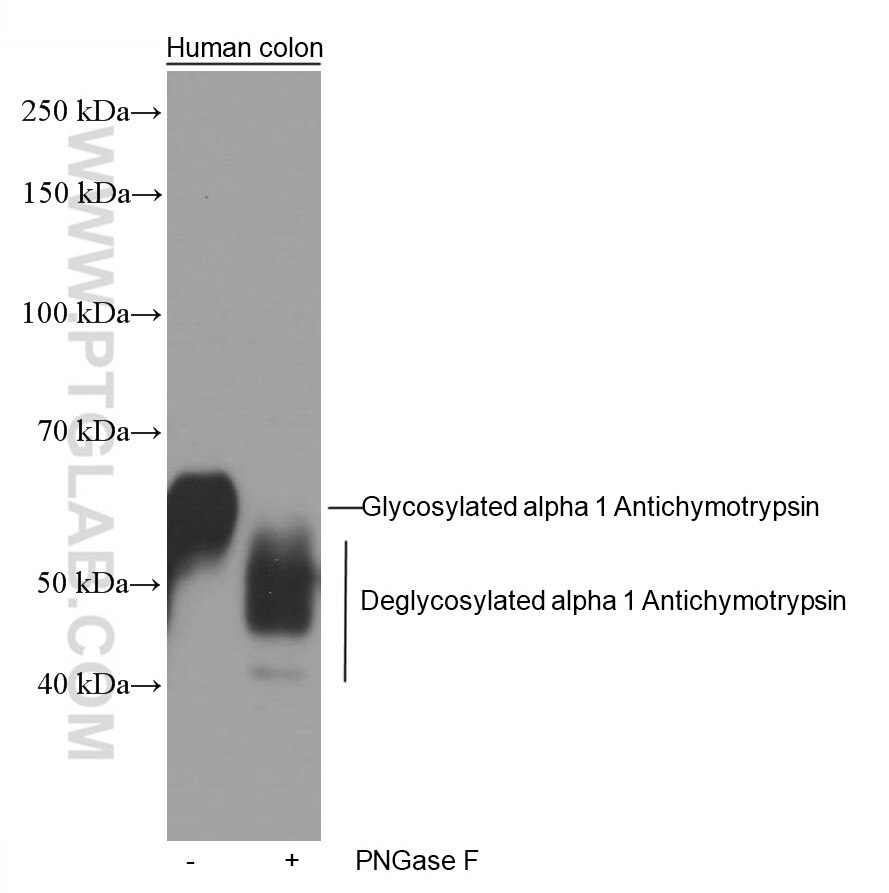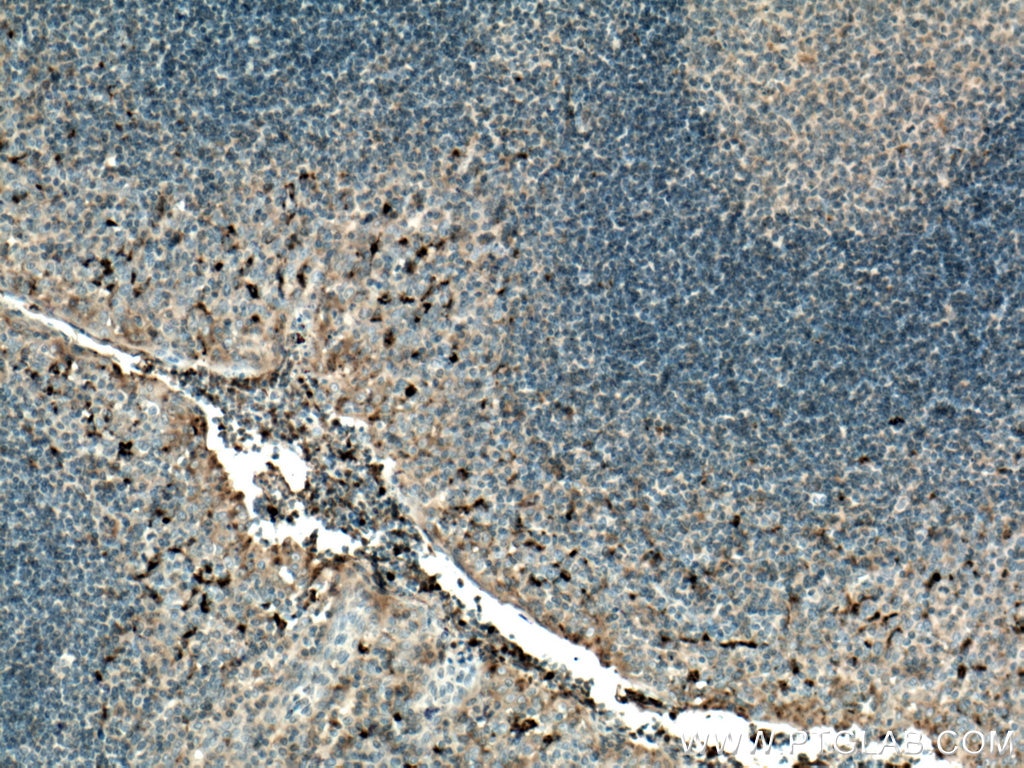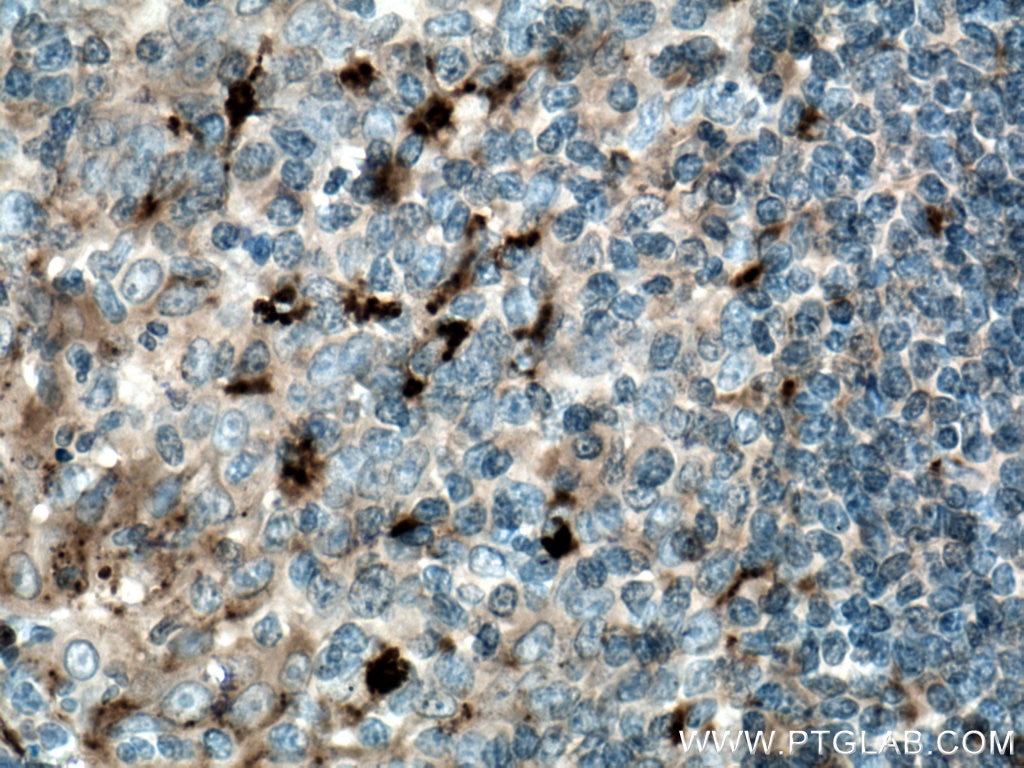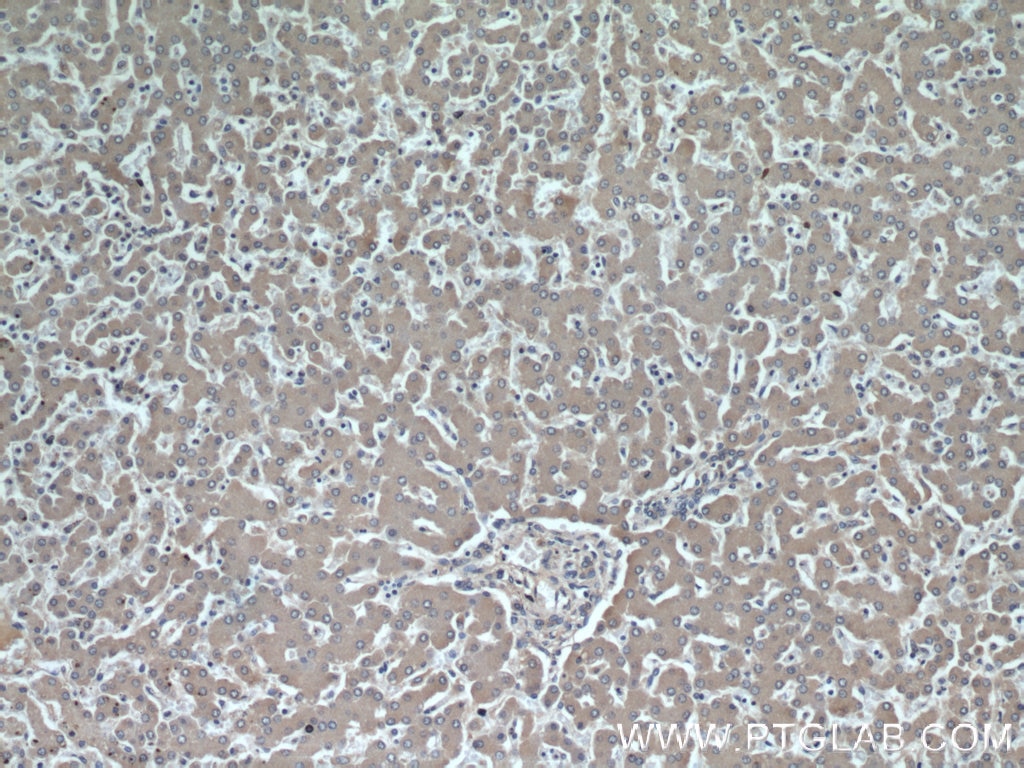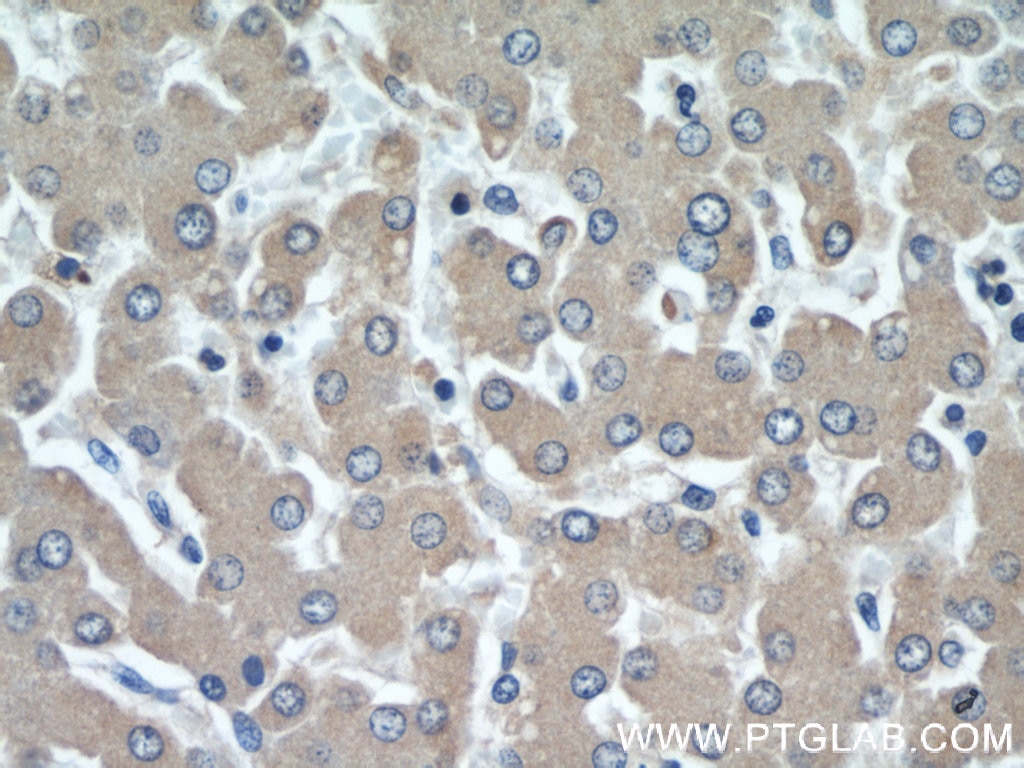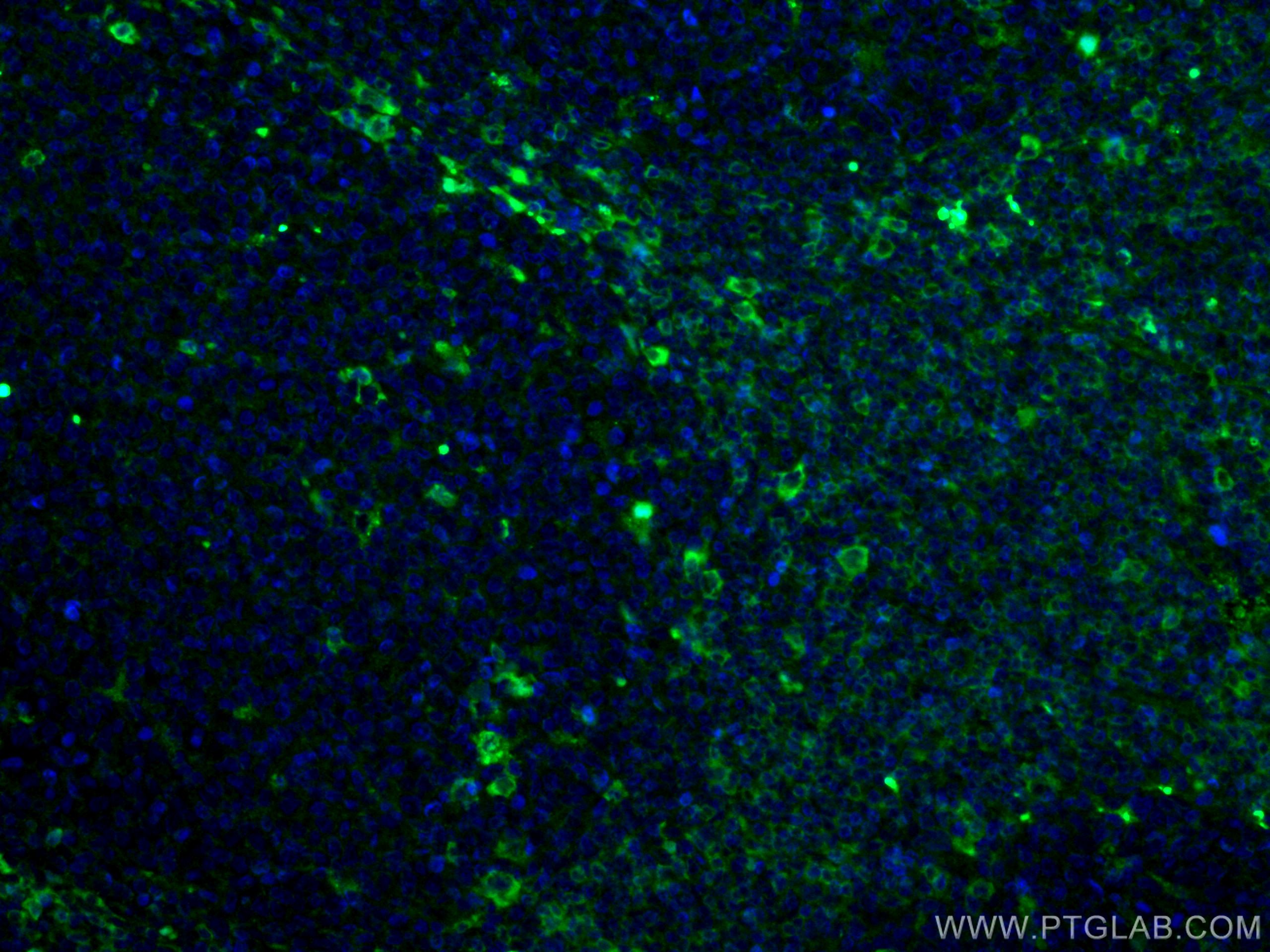Anticorps Monoclonal anti-Alpha 1 antichymotrypsin
Alpha 1 antichymotrypsin Monoclonal Antibody for WB, IHC, IF-P, Indirect ELISA
Hôte / Isotype
Mouse / IgG2b
Réactivité testée
Humain, porc
Applications
WB, IHC, IF-P, Indirect ELISA
Conjugaison
Non conjugué
CloneNo.
3F2F10
N° de cat : 66078-1-PBS
Synonymes
Galerie de données de validation
Informations sur le produit
66078-1-PBS cible Alpha 1 antichymotrypsin dans les applications de WB, IHC, IF-P, Indirect ELISA et montre une réactivité avec des échantillons Humain, porc
| Réactivité | Humain, porc |
| Hôte / Isotype | Mouse / IgG2b |
| Clonalité | Monoclonal |
| Type | Anticorps |
| Immunogène | Alpha 1 antichymotrypsin Protéine recombinante Ag2830 |
| Nom complet | serpin peptidase inhibitor, clade A (alpha-1 antiproteinase, antitrypsin), member 3 |
| Masse moléculaire calculée | 448 aa, 48 kDa |
| Poids moléculaire observé | 60 kDa |
| Numéro d’acquisition GenBank | BC010530 |
| Symbole du gène | Alpha 1 Antichymotrypsin |
| Identification du gène (NCBI) | 12 |
| Conjugaison | Non conjugué |
| Forme | Liquide |
| Méthode de purification | Purification par protéine A |
| Tampon de stockage | PBS only |
| Conditions de stockage | Store at -80°C. 20ul contiennent 0,1% de BSA. |
Informations générales
Human SerpinA3, also known as Alpha 1-antichymotrypsin (AACT), is a member of the serine protease inhibitor class, and is a plasma alpha globulin glycoprotein which increases in the blood during the inflammatory process. SerpinA3, is also an inhibitor of neutrophil cathepsin G, mast cell chymases and pancreatic chymotrypsin. SerpinA3 is produced primarily in the liver, and is identified as an acute-phase inflammatory protein. SerpinA3 deficiency has been associated with liver disease. SerpinA3 has also been implicated in the pathology of a number of devastating human diseases including chronic obstructive pulmonary disease (COPD), Parkinson's disease (PD), Alzheimer's disease (AD), Stroke, Cystic Fibrosis, Cerebral Haemorrhage and Multiple System Atrophy.

